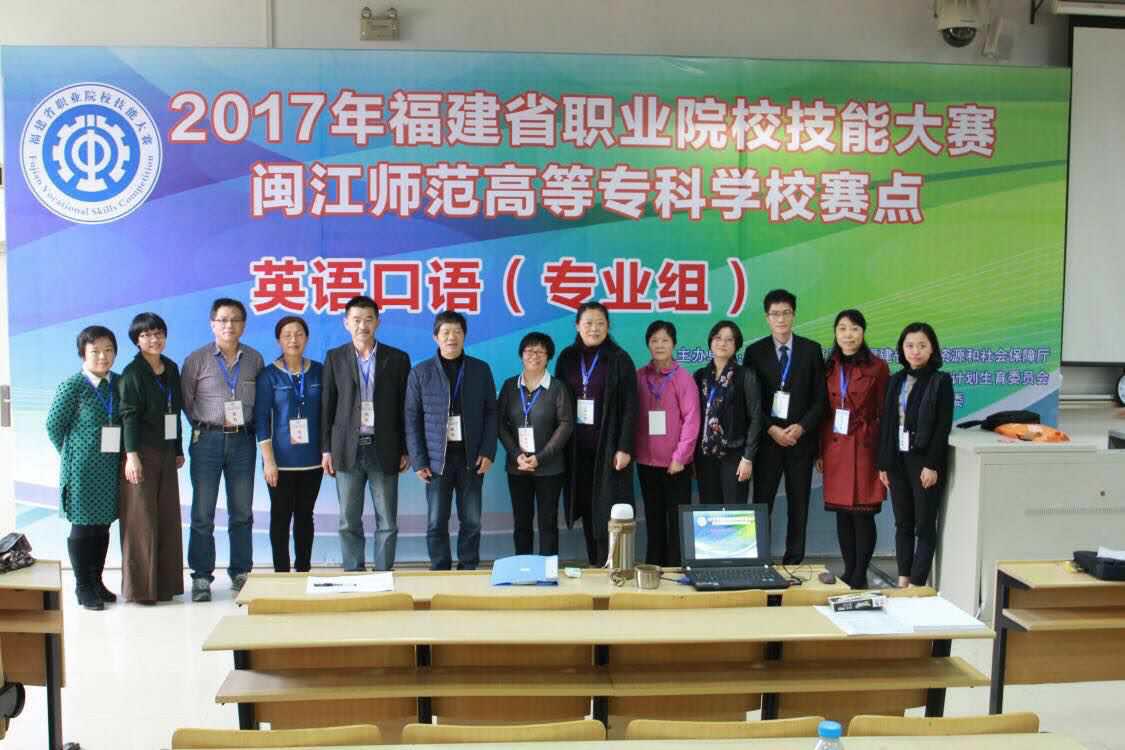The contest was hosted recently by Mingjiang Teachers College in Fuzhou and sponsored by the Educational Bureau, Human Resources and Social Security Bureau, Agricultural Bureau, Health and Family Planning Commission, General Workers Union, Youth League, China Vocational Press,and so on of Fujian Province.
The contest is divided into three parts: 1. Presentation. In this part the contestant is required to talk for three minutes about some charts or tables of import or export figures, market changes, population shifts, production situations and targets, introduction of scenic spots etc and make comments; 2. Interviews. In this part the contestant is required to read some posters or charts of the similar situations above and then answer questions by the interviewers for three minutes. 3. Debate. In this part, only the contestants who survive the previous two rounds are qualified to move on. They pick up their sides by lots and make public their opinions for two minutes each and then fight against each other for three minutes. The three parts are valued at 10 points each respectively.
The interviewers would judge the presentations in four aspects of content, order, language and manners. The scores vary according to the completeness, soundness, and full expounding on the subject matter as well as the logic and order in addition to fluency, colorful and accurate language use and good manners. For the interviews, the interviewers would give scores to the contestants based on their contents, replies, language and manners. The scores can also vary according to the completeness of the content and full expounding on the subject matter as well as swift and clear replies in addition to colorful and accurate language use and good manners.
The contest saw some vocational students shine on the spot, which indicates the success of English teaching in the vocational schools. It is a great opportunity for them to exchange ideas together in English. And it is also a good chance for the teachers present to know what to teach and how to get the students ready for the contest in the future. Both the teachers and the contestants can benefit from each other and see more clearly what to improve and how to improve in the coming contests. The contest can also shed some light for the undergraduate schools as well.
Reported by Joe
